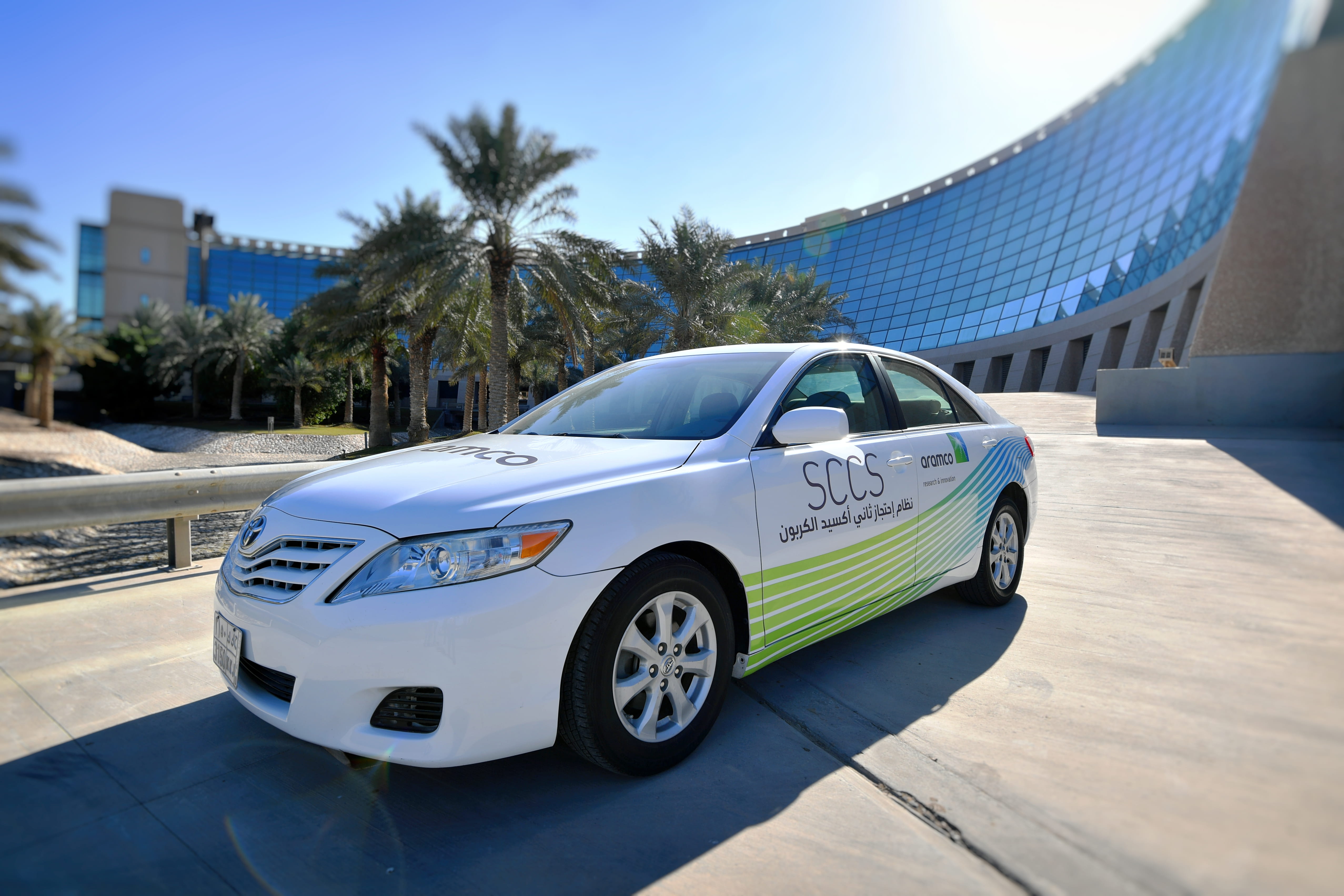
Reducing emissions from transport
MCC is an innovative technology that aims to lower the CO2 footprint of the transport sector.
Refined over nine years by our scientists, the latest variant of MCC technology can capture up to one quarter of the CO2 emitted from a vehicle’s exhaust. The CO2 is stored on-board the vehicle, and once offloaded can be used in a variety of industrial and commercial products.
Current estimates predict that there will be 1.7 billion vehicles using internal combustion engines by 2040. This clearly poses huge challenges for both our natural resources and the environment — particularly in terms of carbon dioxide (CO2) emissions and impending targets on carbon neutrality.
Mobile Carbon Capture progress
We're targeting a 50% CO2 avoidance in our next demonstration in a class 8 Volvo heavy-duty truck.
2019
Our passenger prototype in a Toyota Camry showed a 25% CO2 avoidance.
2013
Our feasibility prototype demonstrated in a Ford F-250 pickup truck shows 10% CO2 capture.
2011
By combining MCC with GCI and other technologies, we aim to achieve a 50% reduction in the CO2 footprint of this latest vehicle.
MCC has the potential to significantly reduce freight transport emissions, and would be especially viable when applied to captive fleets.
In partnering with the automotive industry, we can help cut the development timelines associated with deploying new engine technologies and get more-efficient engines on the road faster.



